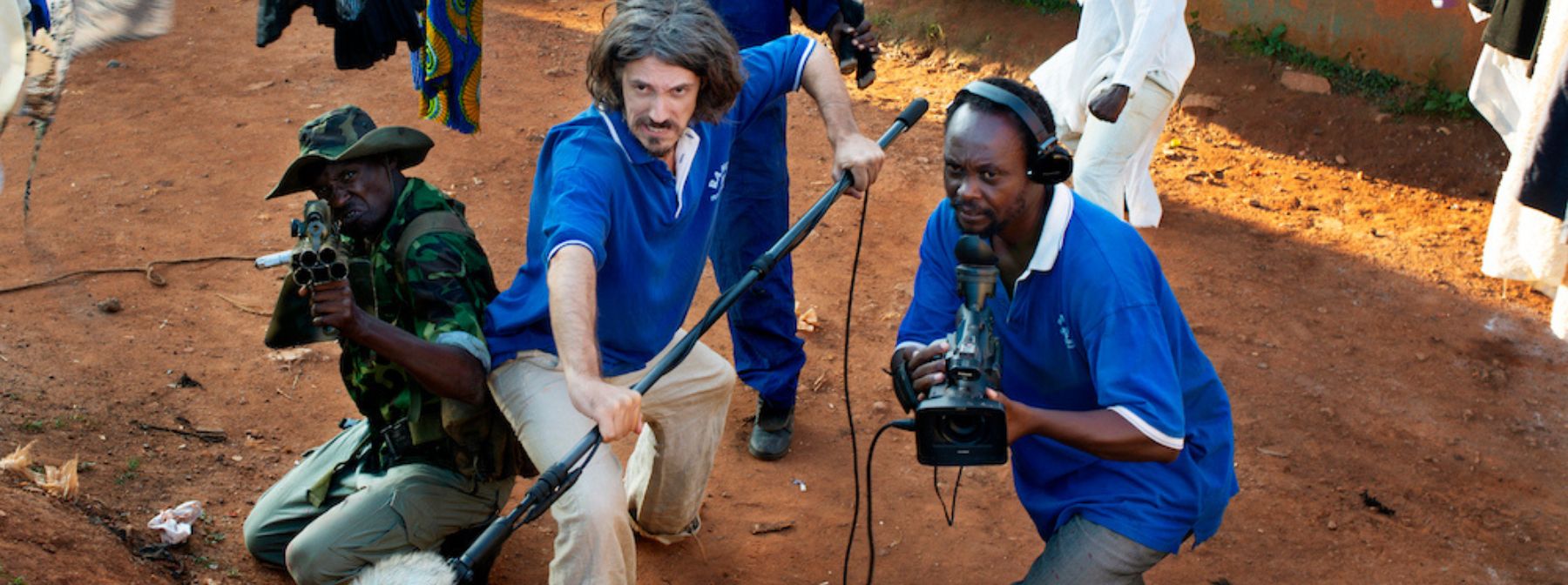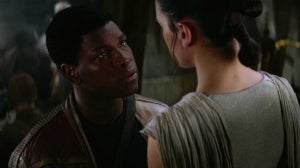
Shot largely in the slum of Wakaliga in Kampala, Uganda, where he lives (affectionately dubbed “Wakaliwood”), Nabwana’s films tend to have budgets of around $150, casts made up entirely of volunteers who have been trained in basic martial arts, and unbelievably thrifty props and special effects. Oh, and they’re narrated throughout by a breathless, enthusiastic commentator who becomes an unofficial hype man.
https://youtu.be/4ygUG7DlBfM?si=qx5GO0jPpQRnirR8
The director’s films shouldn’t work, but they’ve managed to find an enthusiastic cult audience at screenings worldwide. Now, the gospel is being spread further via Once Upon A Time In Uganda, a crowd-pleasing documentary about his unexpected rise to international success via the help of New York film fanatic Alan Hofmanis, who travelled to Uganda to meet the filmmaker immediately after seeing the trailer for his movie Who Killed Captain Alex? a decade ago.
This odd couple first bonded over their love for the action classics of Chuck Norris, and as Nabwana explained to Zavvi, his films are designed to replicate the specific sensation of how those were initially screened to audiences in Uganda.
He said: “I was a brickmaker before I was a director, but I’d wanted to make movies ever since I was a child. Me and my brother Robert taught ourselves Kung Fu after reading a sports magazine when I was eight years old, and I thought that we could make a movie, but he said we didn’t have enough money – but how much does it take to film a punch or a kick?
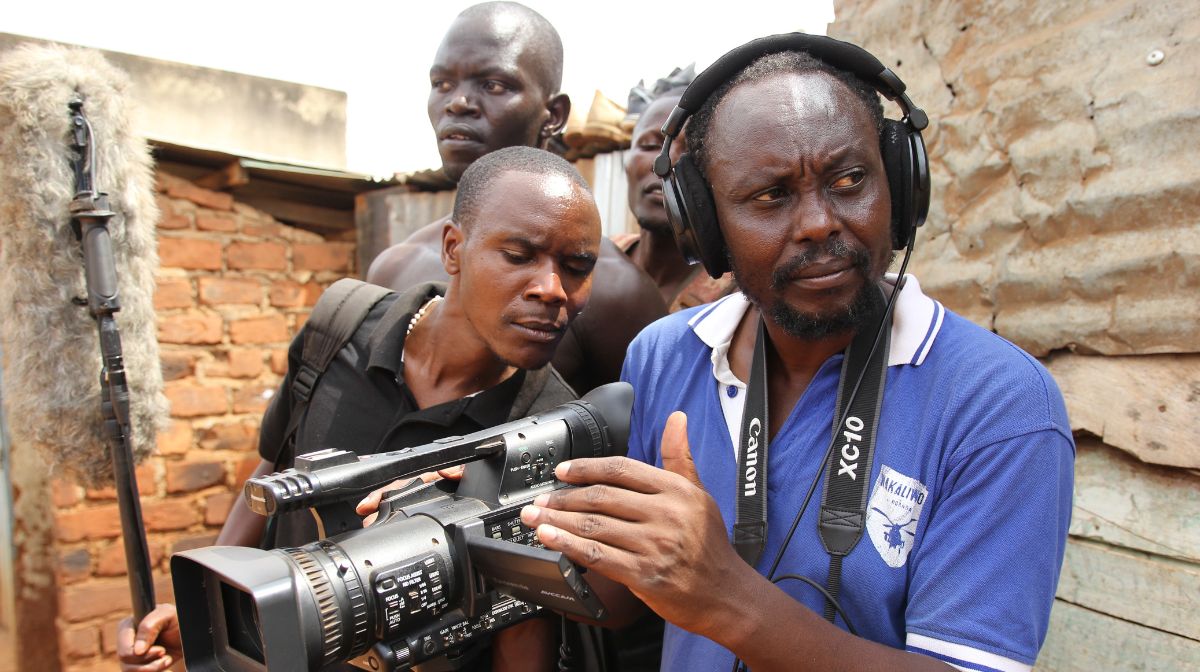
“As a child I didn’t watch movies, but my brother did; I just learned about them as my brother would go and watch action movies, then come back and tell me about the stories in their entirety.
"He exaggerated a lot, but that energy he told them with inspired me – I had an exercise book where I’d be drawing action scenes based on what he’d described, and it wasn’t until years later that I realised this was me learning about storyboarding and camera angles!
“Plus, in Ugandan cinema halls, there would be loudspeakers outside, so if you didn’t have enough money, you’d hear a commentator describe what was happening in Enter The Dragon – and with the poster outside the cinema hung up next to you, it was a gateway to imagine everything onscreen.”
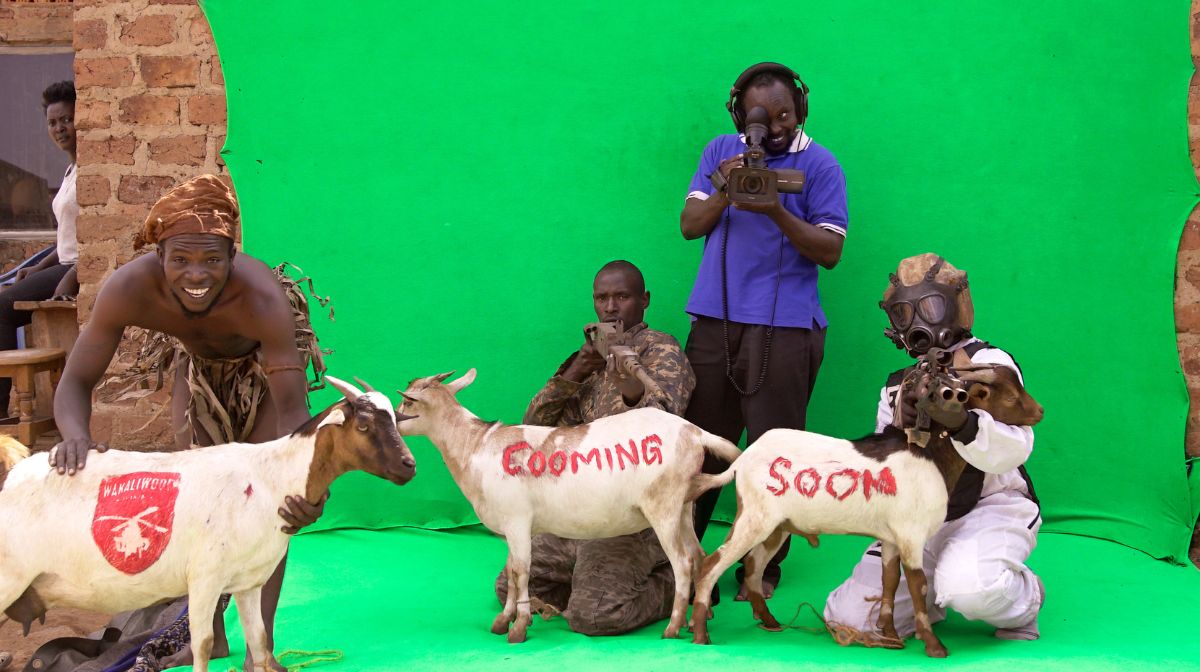
It’s a surprise to hear that an action director as prolific as Nabwana wasn’t allowed to watch violent movies as a kid – he also points out that, even now, he still fast forwards through sex scenes too – considering his movies allow his imagination to run wild.
On a threadbare budget, he’s blown up several Ugandan landmarks, and when writing, he doesn’t limit himself to what he can feasibly pull off with just a camera, a group of eager volunteers, and whichever special effects come pre-loaded with his editing software.
In fact, there was only one thing missing from his recipe for a perfect action movie, which Nabwana cites as the main factor that would help his films get taken seriously by local audiences. And it fell right into his hands when Hofmanis moved from New York to Uganda in the hope of working with him.
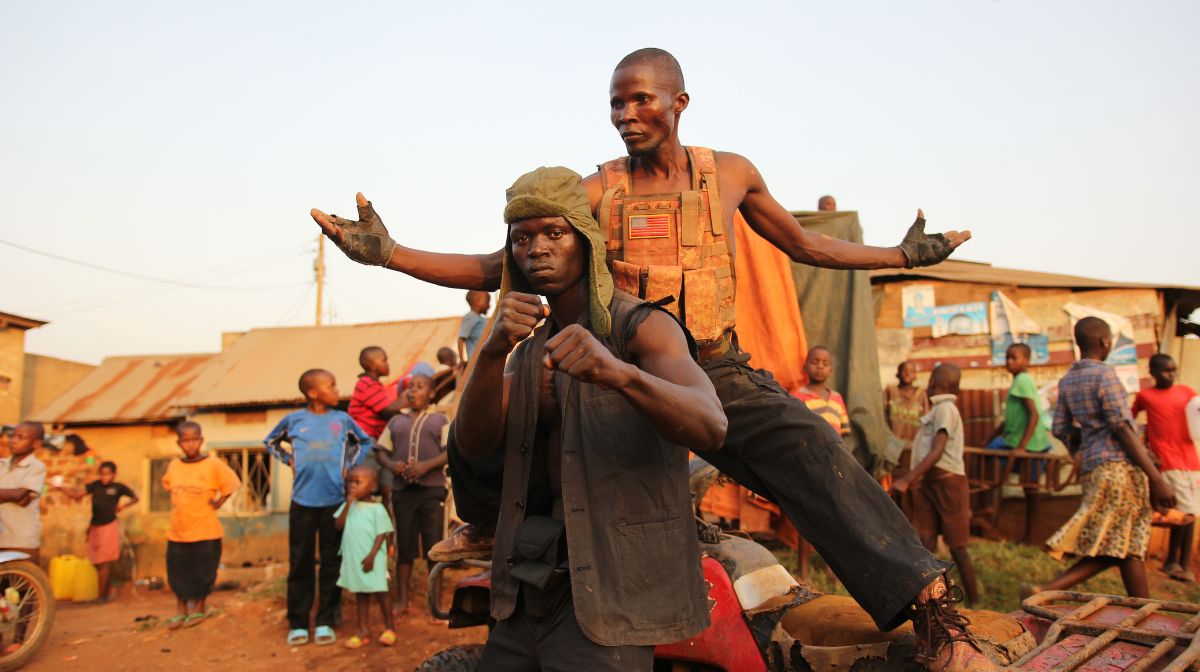
“I was never thinking about my international reputation when Alan arrived, as I was still trying to break into the Ugandan market. And as audiences here grew up with American stars, to Ugandan minds, action heroes were white – and if a movie in this genre has no white people in it, it makes no sense to the market here.
“But Alan was not very good at martial arts, which is when it became clear that we could offer what no American film could. Van Damme, Schwarzenegger, Chuck Norris, these guys don’t die or lose fights – but I could show a white man getting beaten up!”
However, Nabwana still has a difficult time getting Ugandan audiences to see his films; cinema there is for the middle classes, he explains, meaning the communities his movie is by and about don’t get to see his work on the big screen.
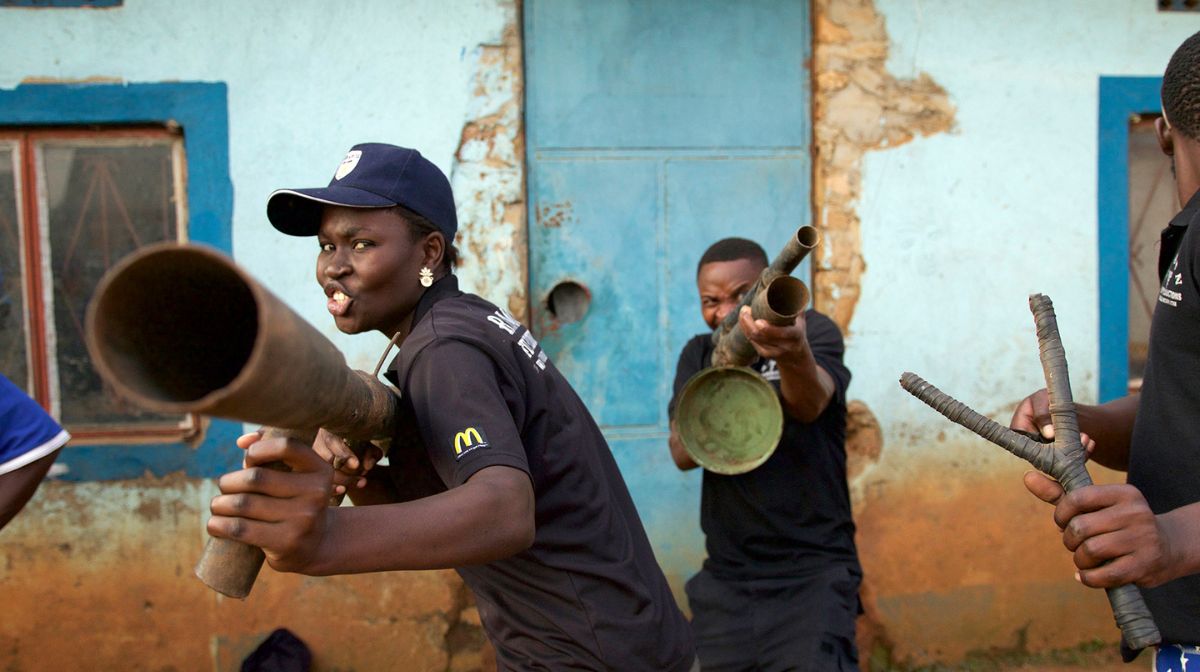
In the documentary, we see his casts going door-to-door, village-to-village, selling DVDs of his movies – but despite international awareness and an eventual TV miniseries deal with a major Ugandan network, he still never sees anything in the way of profit.
Since COVID stopped DVD players getting shipped into the country, he’s now taken up a new method; going door-to-door across Uganda to encourage people to download a Smartphone app where they can stream his films.
Internationally, however, fans can’t get enough – he states he still gets roughly three calls a day from fans who want to fly out as volunteer actors for his movies (and a fun montage of volunteers being killed in elaborate ways closes out the documentary).
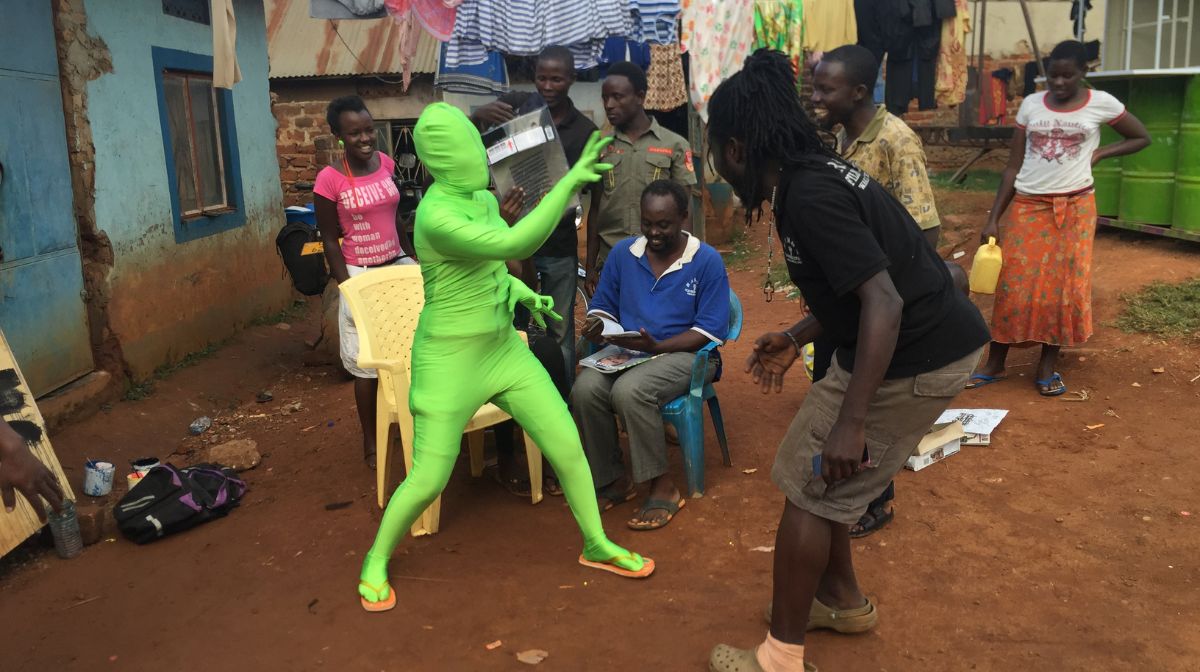
His films have since played to rapturous acclaim at festivals worldwide, but he’s resisting the urge to leave Wakaliwood for Hollywood; he doesn’t like the overuse of CGI in contemporary action scenes, preferring the “old-fashioned” way of shooting big screen fighting.
Because of this, he remains something of an inspiration for budding low-budget filmmakers the world over, and he offered extensive advice to anybody who wants to pick up a camera for the first time.
“We have limited time on Earth, you must follow your dreams – and if you’ve got talent, then you don’t need a budget to make those dreams come to life. There are people who will say that the sound or the visuals in my movies are bad, but put it this way; we had a silent era of movies, do people say those sound bad now?
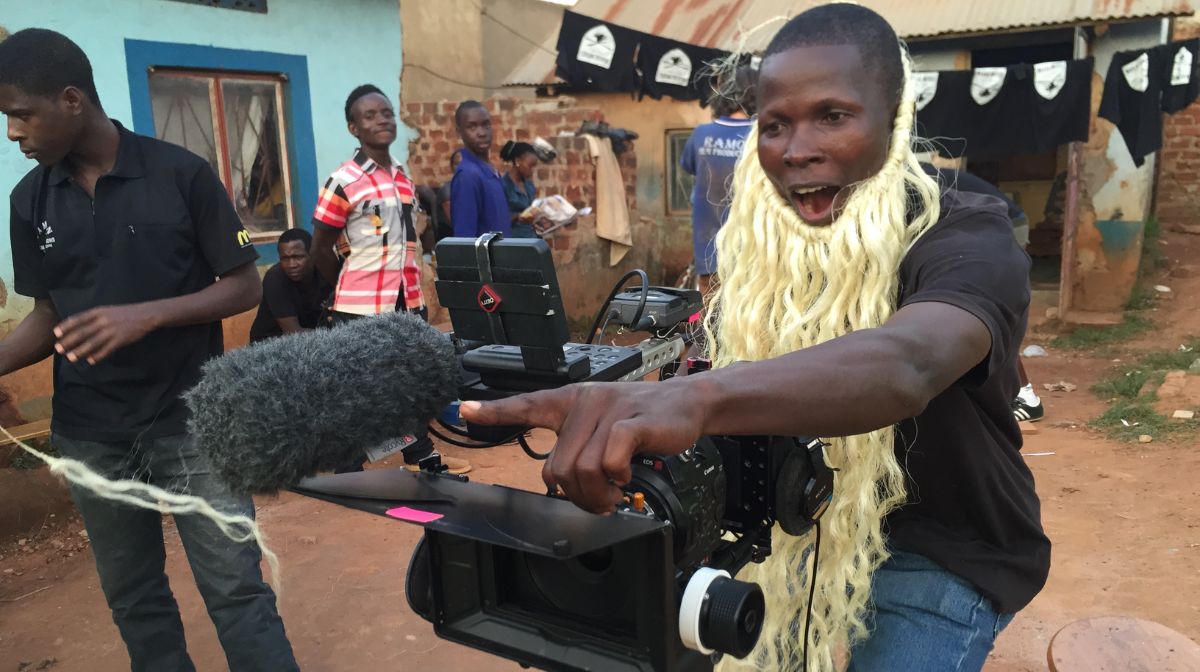
“And if, God forbid, the President is assassinated in front of you and you got footage on a crappy smartphone, do you think that the BBC or CNN wouldn’t play it? There are people shooting in 8K, but in Uganda, barely anybody has the resources to watch it in that format – so why waste money trying to make it look that good, when you can make it as simple and affordable as possible, in a format that anybody can easily watch on a DVD?
“I always make movies for an audience, and if they’re having a good time, they’re not going to stop and ask you what camera it was filmed on.”
Regardless of whether it inspires you to pick up a camera, or dive deep into the wild world of Wakaliwood action cinema, you’ll leave Once Upon A Time In Uganda completely energised.
Once Upon A Time In Uganda is in cinemas from Tuesday, 5th September.Once Upon a Time in Uganda will screen at Odeon cinemas nationwide on 5 September + recorded Q&A with Wakaliwood filmmaker Isaac NabwanaBuy tickets here: https://bit.ly/UgandaOdeon

